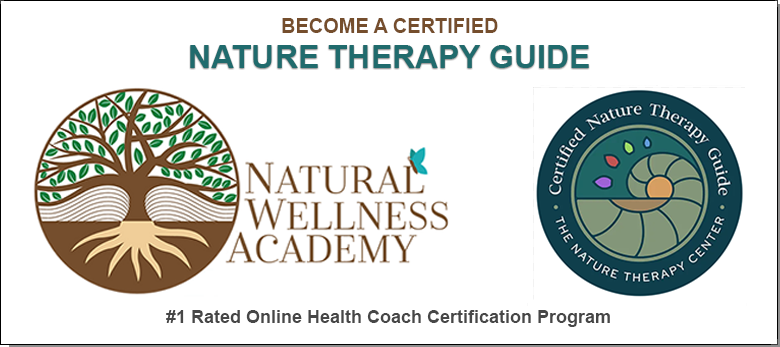
In today’s fast-paced and technology-driven world, many individuals are seeking ways to reconnect with nature and improve their overall well-being. Nature therapy, also known as ecotherapy, has emerged as a powerful tool for promoting mental, physical, and emotional health. As the demand for holistic wellness approaches grows, so does the need for qualified professionals in the field. This article explores why you should consider nature therapy certification, the benefits of this credential, and what to expect from nature therapy training programs.
Contents
Understanding Nature Therapy
What is Nature Therapy?
Nature therapy involves engaging with natural environments to enhance well-being. It encompasses a range of activities such as walking in the park, hiking, gardening, and outdoor meditation. The core principle of nature therapy is that humans have an intrinsic connection to nature, and interacting with natural settings can restore balance and improve health.
The Science Behind Nature Therapy
Research has shown that nature therapy can reduce stress, improve mood, boost cognitive function, and enhance physical health. Studies highlight various physiological and psychological benefits, including lowered cortisol levels, increased immune function, and better mental clarity. These findings underscore the importance of incorporating nature into our daily lives.
The Benefits of Nature Therapy Certification
Professional Credibility
Obtaining a nature therapy certification provides professional credibility, demonstrating that you have the knowledge and skills to effectively incorporate nature therapy into wellness practices. Certification programs typically cover essential topics, including the principles of nature therapy, therapeutic techniques, and the science behind its benefits.
Enhanced Career Opportunities
As the demand for holistic and natural wellness approaches grows, having a nature therapy certification can open up various career opportunities. Certified nature therapists can work in diverse settings such as wellness centers, mental health clinics, hospitals, and private practices. This credential can also enhance your resume, making you more competitive in the job market.
Comprehensive Training
Nature therapy training programs offer comprehensive education on how to design and implement nature-based therapeutic interventions. These programs provide hands-on experience and theoretical knowledge, ensuring that practitioners are well-equipped to guide their clients in nature therapy practices. The training covers various aspects of ecotherapy, from understanding the psychological impact of nature to practical applications in different settings.
Key Components of Nature Therapy Certification
Curriculum and Coursework
Nature therapy certification programs typically include a diverse curriculum that covers various aspects of nature-based healing. Coursework may include:
- Theoretical Foundations: Understanding the principles and theories behind nature therapy.
- Practical Techniques: Learning specific nature therapy activities and interventions.
- Client Assessment: Techniques for assessing clients’ needs and tailoring nature therapy sessions accordingly.
- Scientific Research: Reviewing current research on the benefits and effectiveness of nature therapy.
Hands-On Training
Practical experience is a crucial component of nature therapy training. Certification programs often include hands-on training, allowing students to practice therapeutic techniques in real-world settings. This can involve supervised nature therapy sessions, fieldwork, and experiential learning activities.
Ethics and Professional Standards
Ethical considerations and professional standards are essential in any therapeutic practice. Nature therapy certification programs emphasize the importance of ethical conduct, client confidentiality, and professional boundaries. Practitioners are trained to maintain high standards of practice to ensure the safety and well-being of their clients.
Personal and Professional Growth
Holistic Healing
Nature therapy training equips practitioners with the skills to promote holistic healing. By integrating physical, mental, and emotional health, nature therapy provides a comprehensive approach to wellness. Practitioners learn to guide clients in connecting with nature to enhance their overall well-being.
Personal Growth
Pursuing nature therapy certification offers opportunities for both personal and professional growth. Practitioners not only gain valuable skills and knowledge but also experience the therapeutic benefits of nature themselves. This personal growth enhances their ability to support and guide clients effectively.
Community Impact
Certified nature therapists can make a positive impact on their communities by promoting nature-based wellness practices. They can lead community programs, workshops, and retreats that encourage people to connect with nature and improve their health. This contributes to a healthier and more connected community.
Choosing the Right Nature Therapy Training Program
Accreditation and Reputation
When selecting a nature therapy training program, it is important to choose one that is accredited and has a good reputation. Accredited programs meet specific educational standards, ensuring that you receive quality training. Research the program’s reputation by reading reviews and testimonials from past students.
Curriculum and Faculty
Examine the curriculum and faculty of the training program. Ensure that the curriculum covers a comprehensive range of topics relevant to nature therapy and includes both theoretical and practical components. Look for experienced and knowledgeable faculty members who have expertise in nature therapy and related fields.
Flexibility and Support
Consider the flexibility and support offered by the training program. Look for programs that offer flexible scheduling options, such as online courses or weekend workshops, to accommodate your needs. Additionally, ensure that the program provides adequate support, including access to resources, mentorship, and networking opportunities.
The Future of Nature Therapy
Growing Demand
The demand for nature therapy is expected to continue growing as more people seek holistic and natural approaches to health. The wellness industry is increasingly recognizing the benefits of nature therapy, leading to more opportunities for certified practitioners.
Integration into Traditional Healthcare
As evidence supporting the benefits of nature therapy continues to accumulate, it is likely to become more integrated into traditional healthcare practices. Healthcare providers may incorporate nature therapy into treatment plans for various conditions, from mental health disorders to chronic pain management.
Innovation and Research
The field of nature therapy is still evolving, with ongoing research and innovation driving its development. Future advancements may include new therapeutic techniques, improved training programs, and a deeper understanding of how nature impacts health. Certified practitioners will play a crucial role in advancing the field and contributing to its growth.

